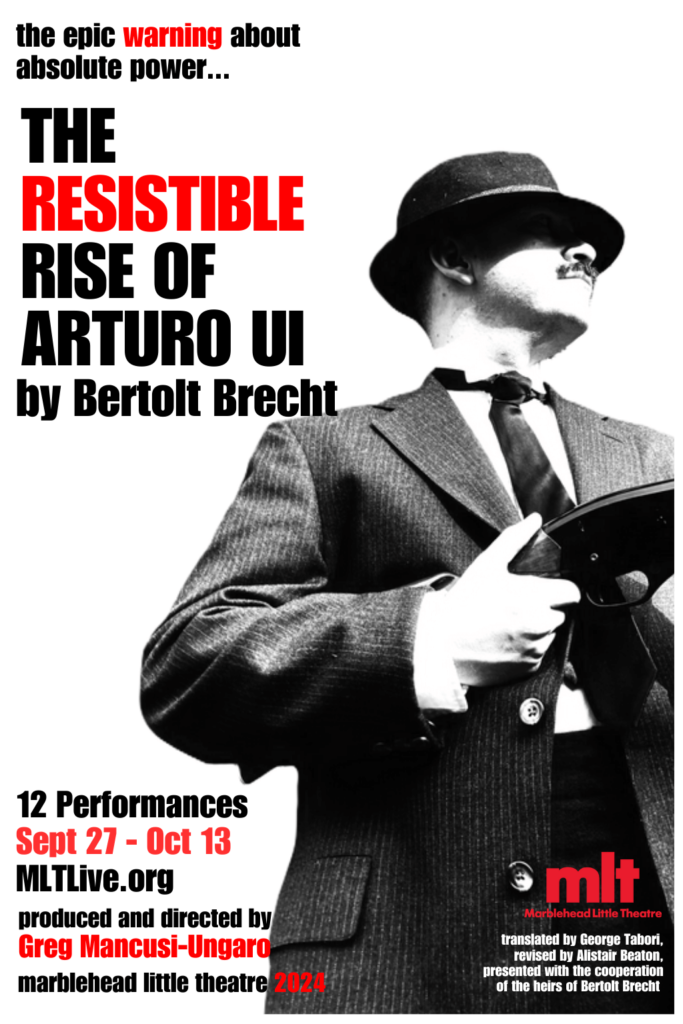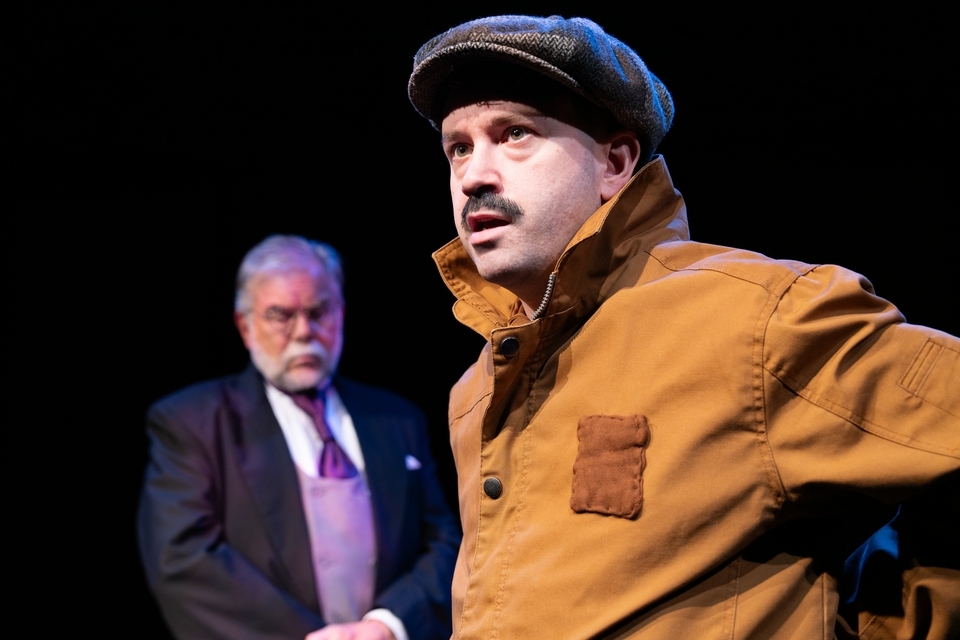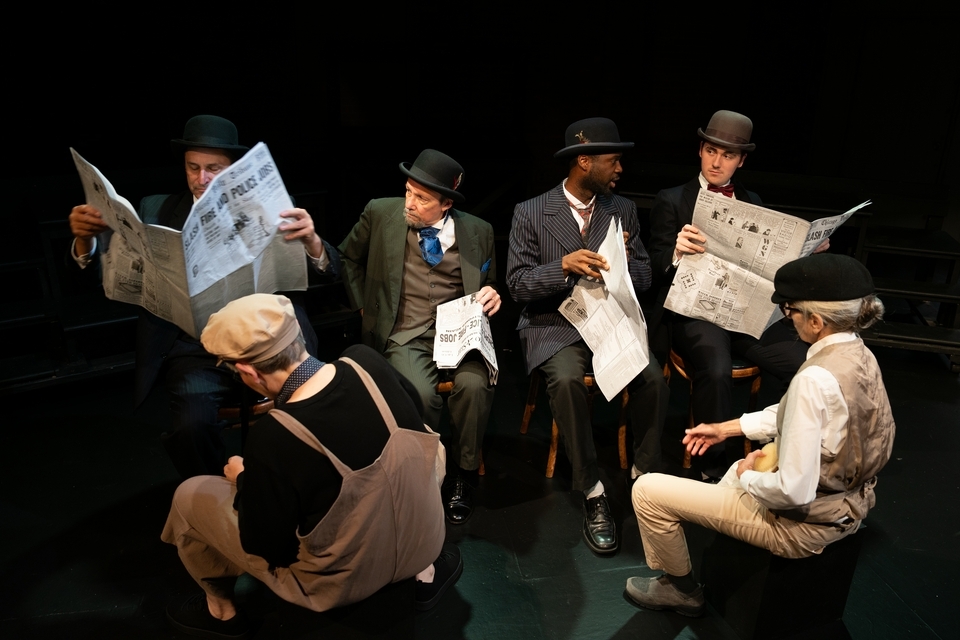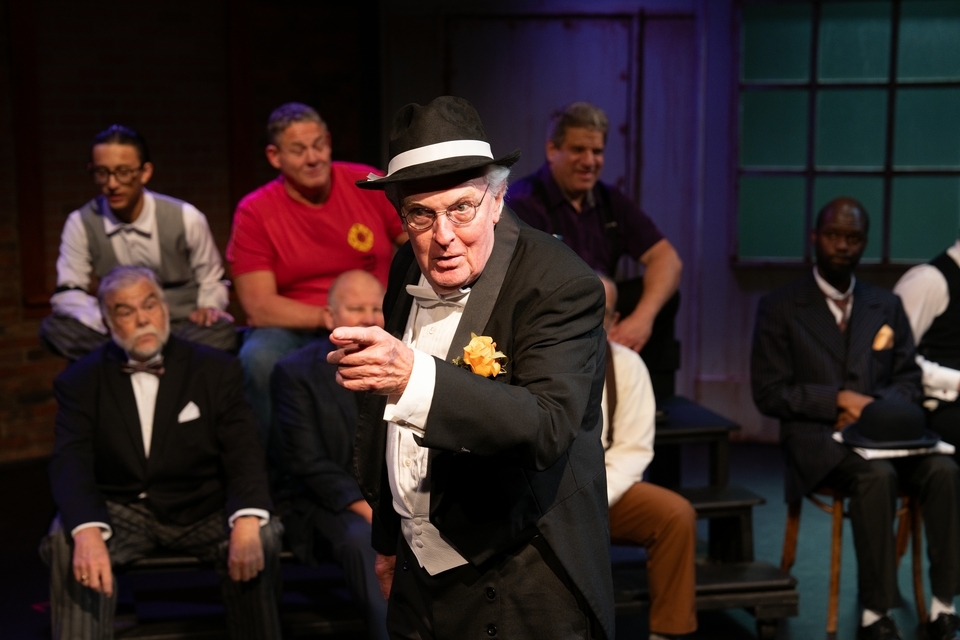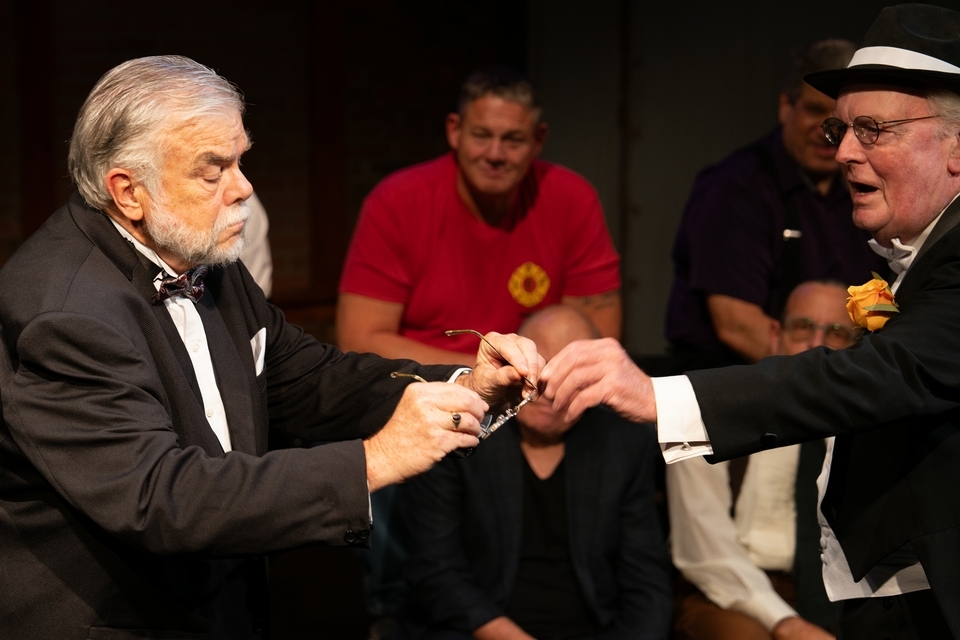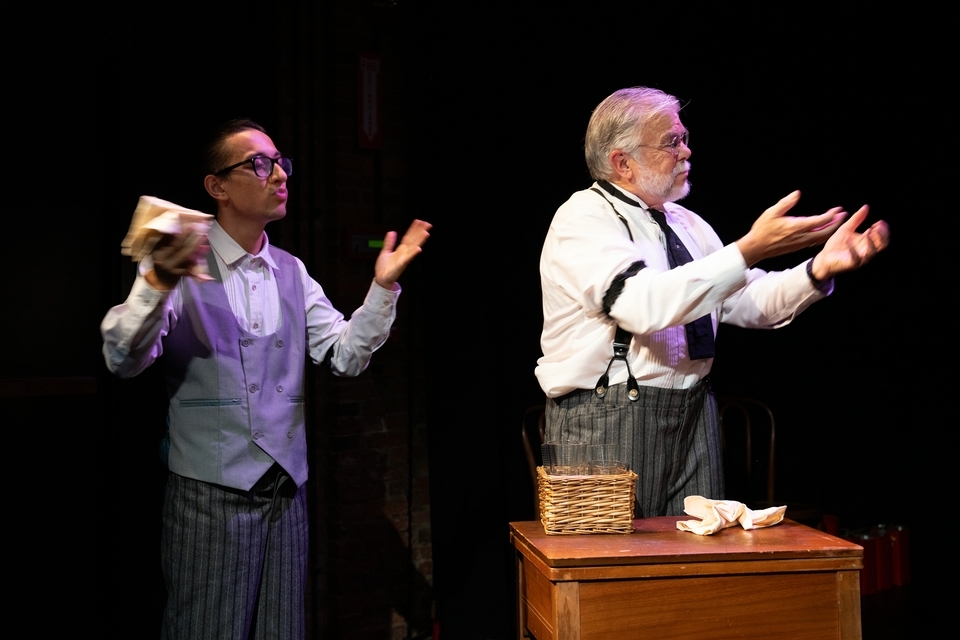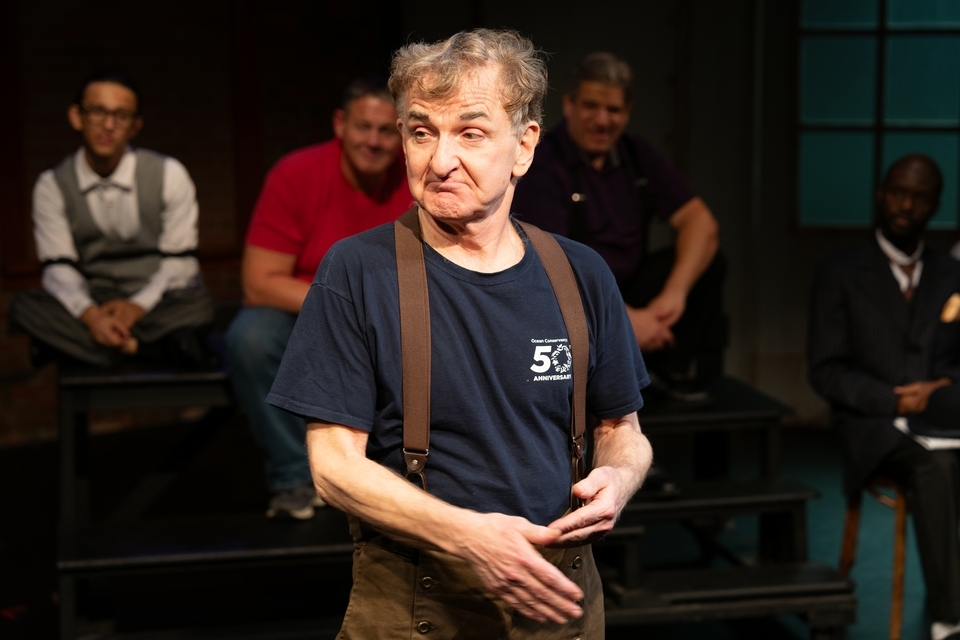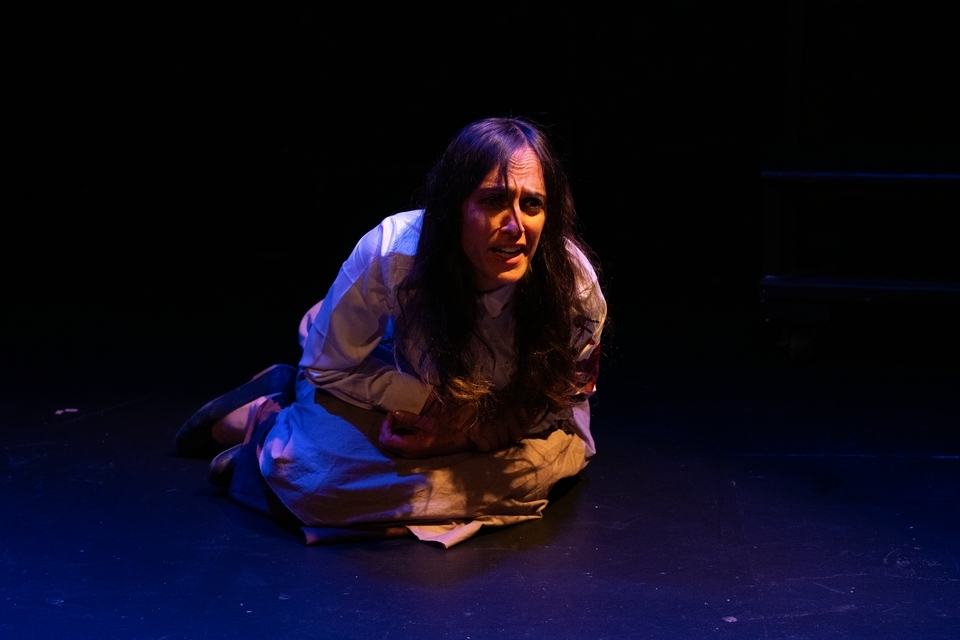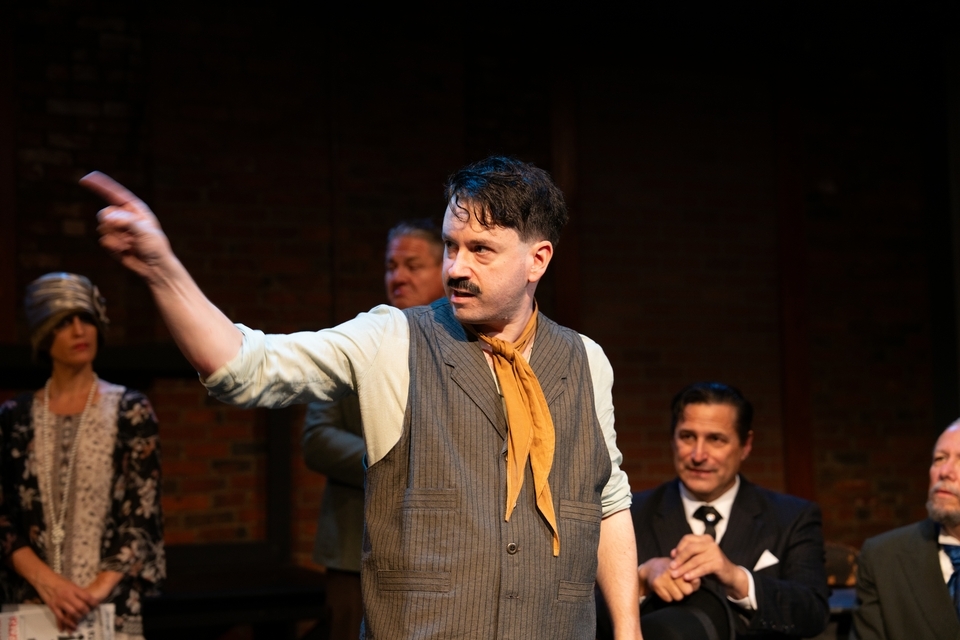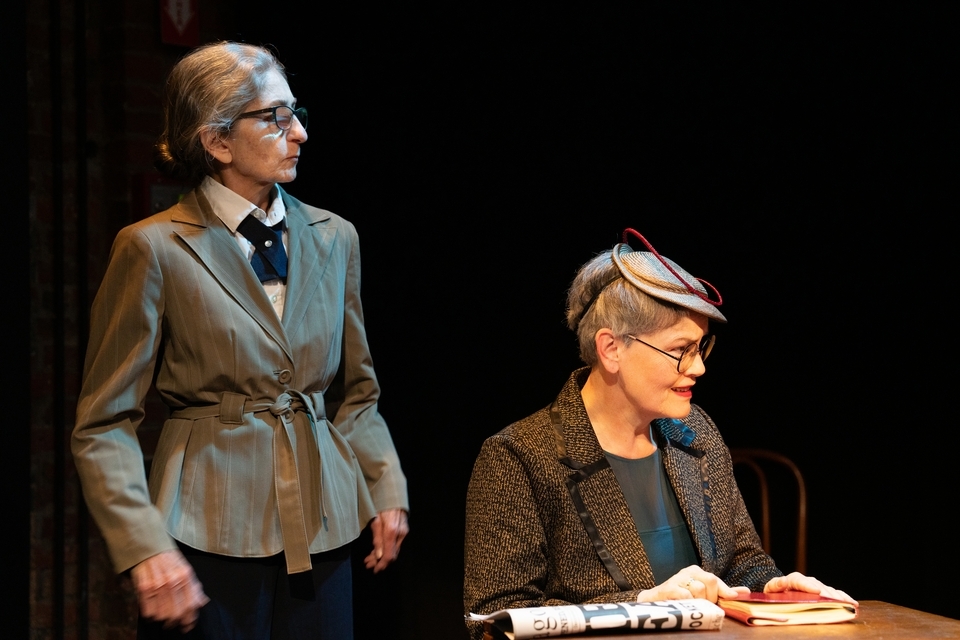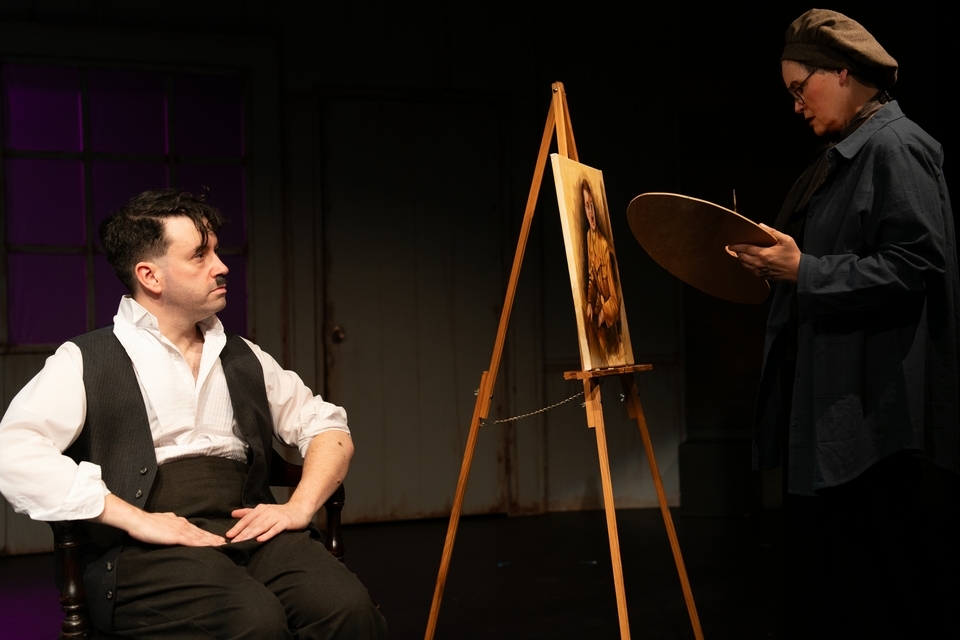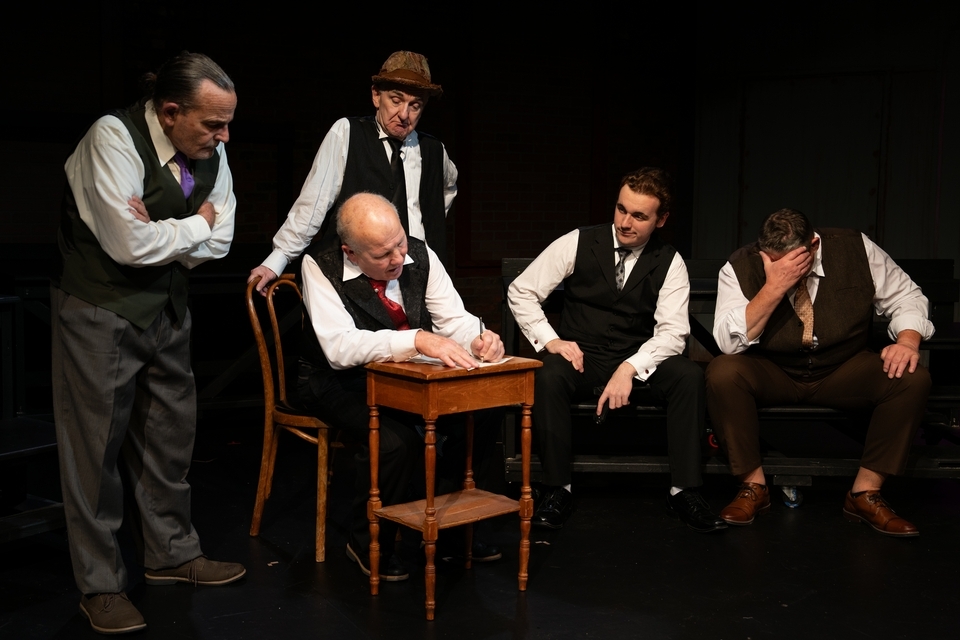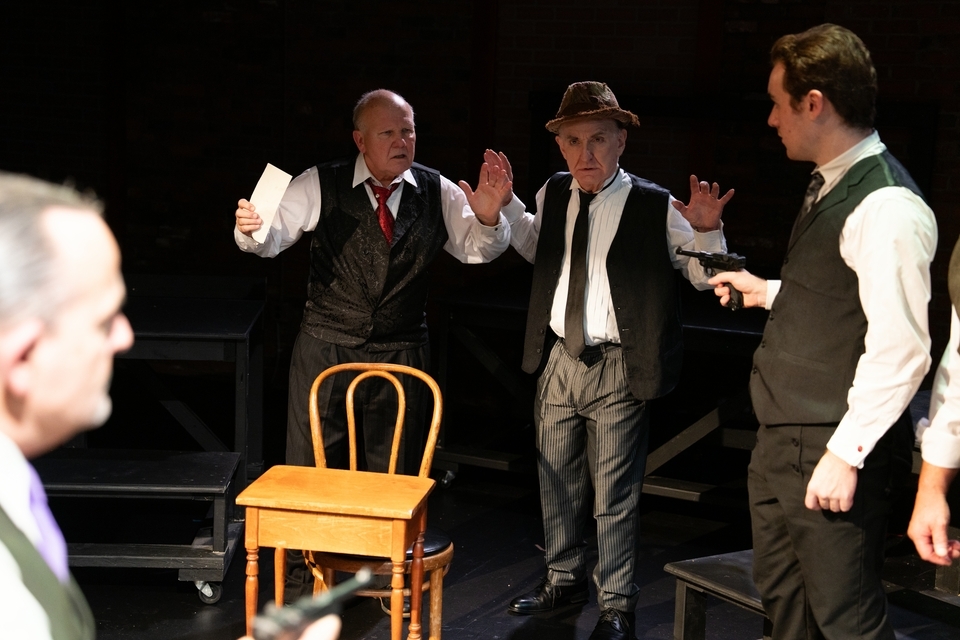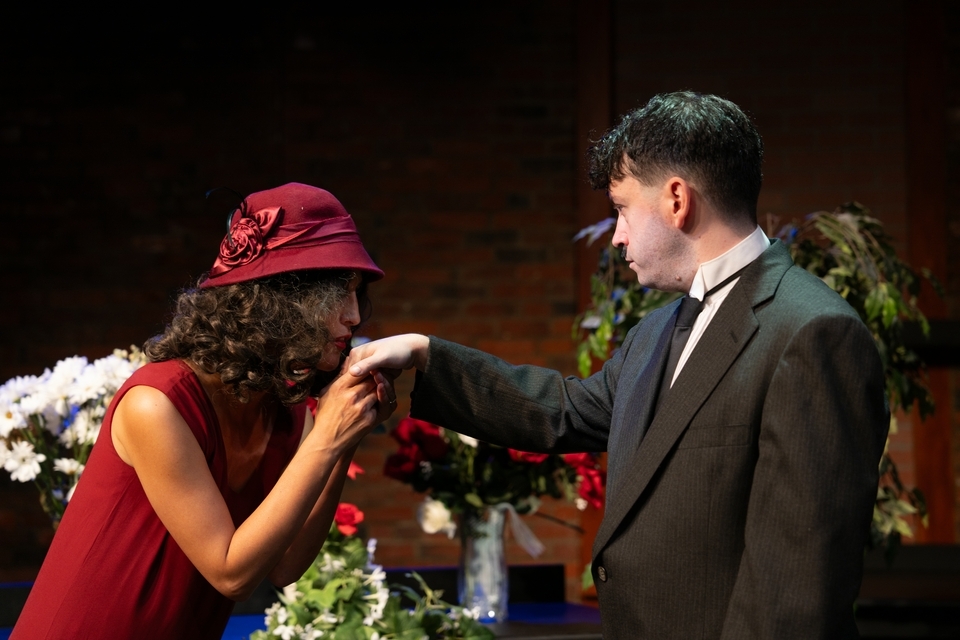Written by Bertolt Brecht
Translated by George Tabori
Revised by Alistair Beaton
Directed by Greg Mancusi Ungaro
Written in the ‘30s, set in the ’20s, Bertolt Brecht’s epic gangster play was conceived to warn America about the preciousness of democracy. Through powerful, transparent allegory, Brecht shows us the path of an ordinary grifter, as he rises from obscurity to the pinnacle of power. This satire is a dark commentary of the perils of unchecked power.
Tickets!
Group Tickets!
Marblehead Little Theatre encourages students (college theater majors and other majors) to see this thought-provoking play. Matinee shows on Saturdays and Sundays are always discounted for students.
For groups of 10 or more, we are offering an additional $5 off per ticket. Please contact the Box Office at info@mltlive.org to coordinate the group purchase.
Arturo Ui Program
About BERTOLT BRECHT. (Playwright)
Born in Bavaria, 1898. At 24, his cutting-edge Drums in the Night won him Expressionist recognition. His quickly written Threepenny Opera was Germany’s greatest hit of the 1920s. Revolutionary in form for 1928 Berlin – non-operatic, anti- highbrow musical theater – and cynically satirical, it irritated the Nazis; Brecht let Germany with his family in 1933. He continued to write in Scandinavia (e.g. Mother Courage) until the Nazi invasion. In California, along with some work for Hollywood he wrote The Caucasian Chalk Circle and Galileo, produced in L.A. in 1947. The House Un-American Activities Committee interrogated him that same year; he left the U.S. the following day. He established the Berliner Ensemble in 1949 in East Berlin, opening Mother Courage with his wife Helene Weigel; its 1954 tour to Paris brought him recognition as Europe’s most important director, a year before his untimely illness and death.
Presented with the cooperation of the Heirs of Bertolt Brecht

